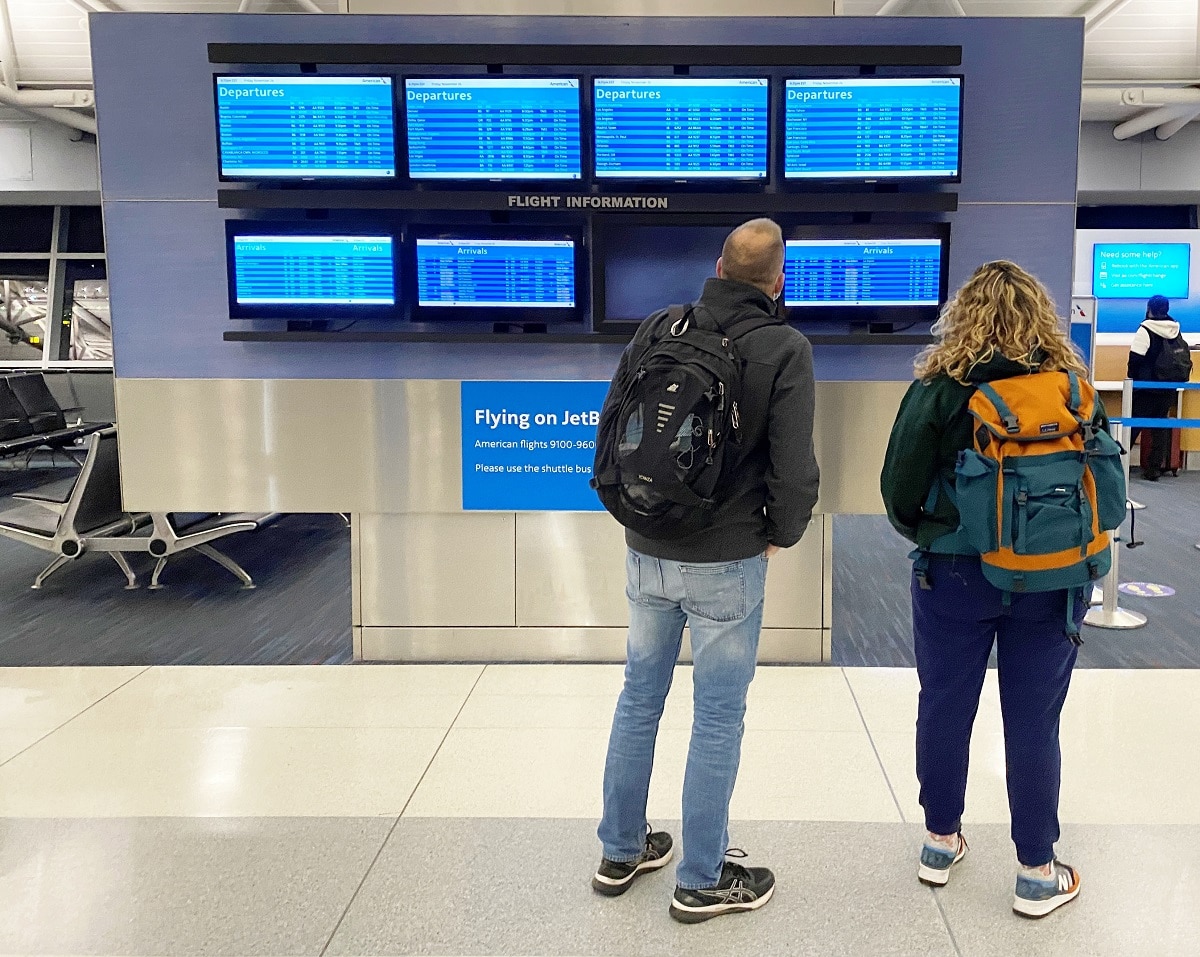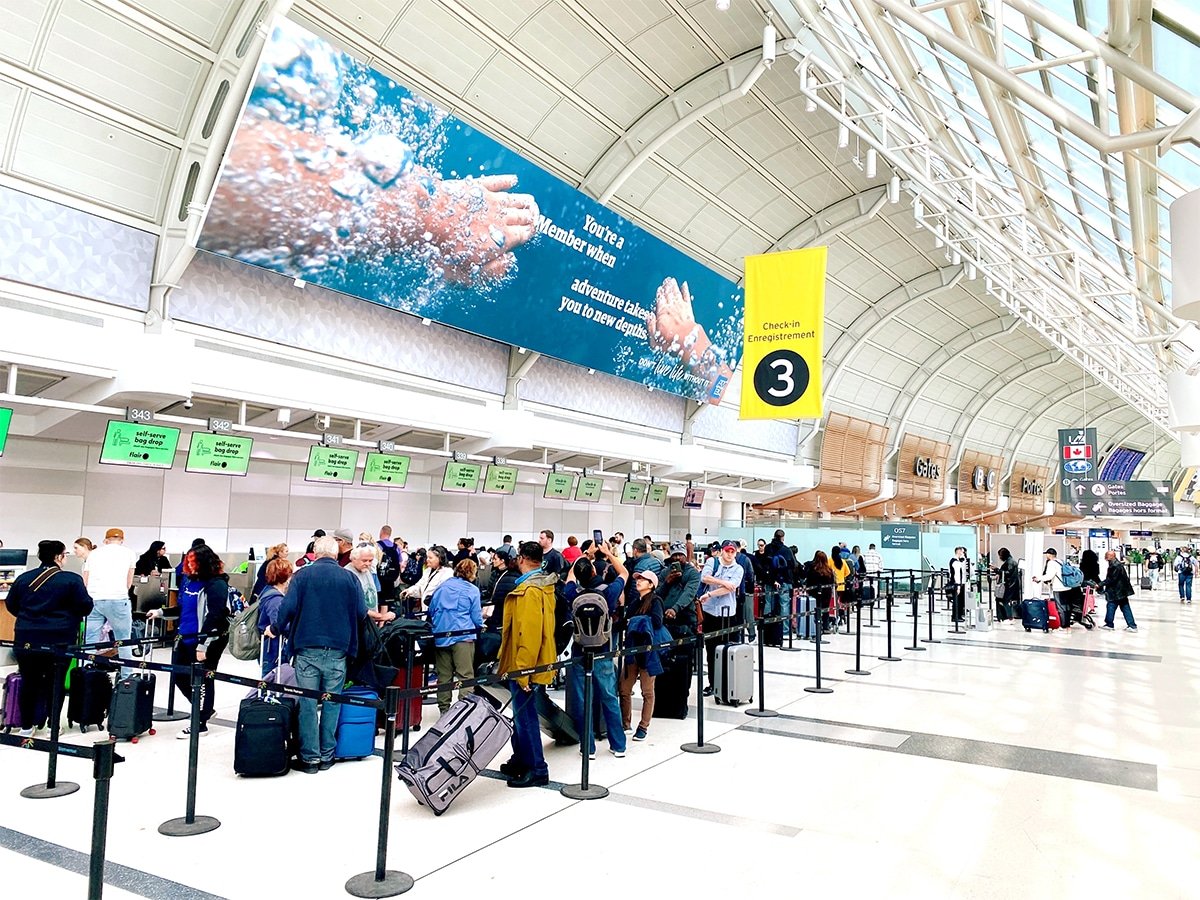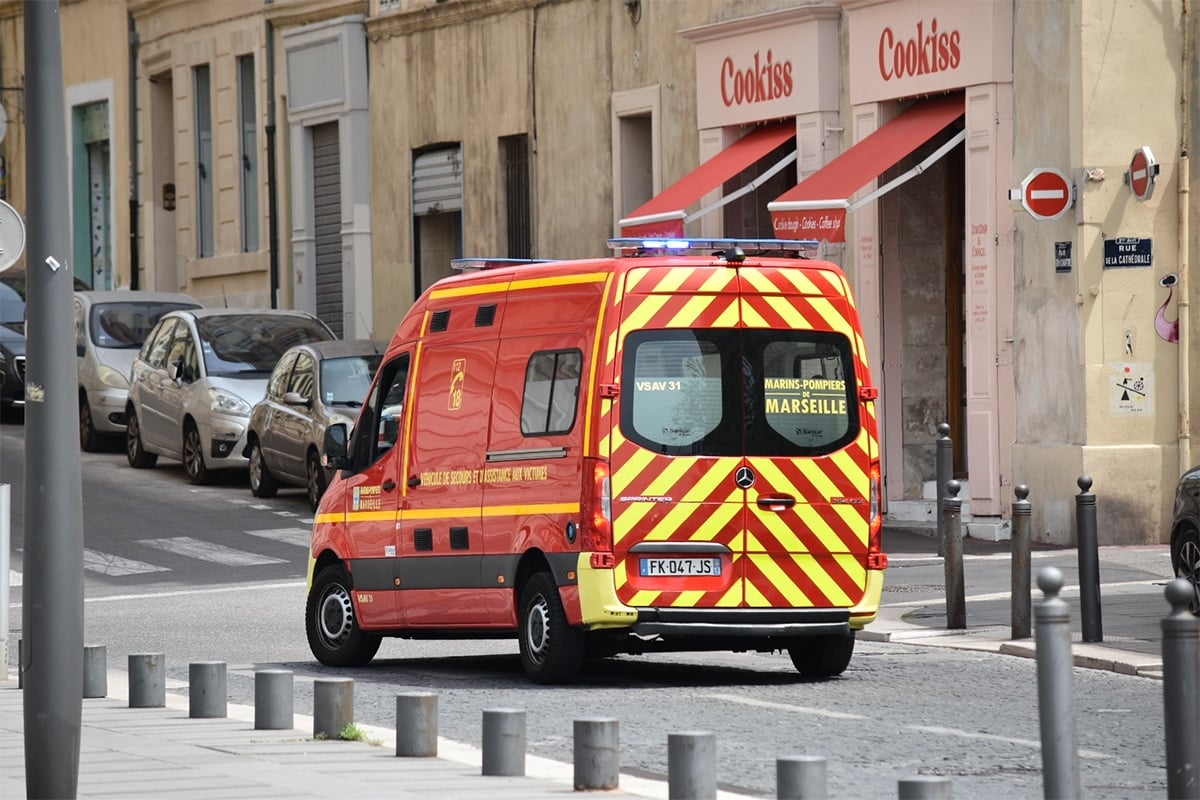 Here we go again. It seems like every few months, there’s another variant of concern to be, well, concerned about. As coronavirus makes its way through the Greek alphabet, we find ourselves staring down Omicron, the latest strain that’s started to appear around the world. Because Omicron is so new, there’s not a lot we know about it or how it behaves yet, but there are some things experts do know. Here are 12 things travelers need to know about Omicron.
Here we go again. It seems like every few months, there’s another variant of concern to be, well, concerned about. As coronavirus makes its way through the Greek alphabet, we find ourselves staring down Omicron, the latest strain that’s started to appear around the world. Because Omicron is so new, there’s not a lot we know about it or how it behaves yet, but there are some things experts do know. Here are 12 things travelers need to know about Omicron.
1. What is Omicron?
Omicron, also known as the B.1.1.529 variant, was first reported to the World Health Organization (WHO) from South Africa on November 24, 2021. According to WHO, “The epidemiological situation in South Africa has been characterized by three distinct peaks in reported cases, the latest of which was predominantly the Delta variant. In recent weeks, infections have increased steeply, coinciding with the detection of B.1.1.529 variant. The first known confirmed B.1.1.529 infection was from a specimen collected on 9 November 2021.”
2. Ignore fear mongering and naysaying
Before we delve further into how Omicron is impacting travel, I think this is worth saying off the top: It’s important to remain calm, keep perspective and listen to health officials. According to Dr. Jha, Professor and Dean at Brown University School of Public Health: “There will be those who will spread fear — and those who will downplay it. Please ignore both groups.” He goes on to say that this new variant is concerning but experts are still learning about it so let’s wait and see how it plays out.
3. Travel restrictions
The United States, the United Kingdom, the European Union, Japan, Australia and Canada have imposed restrictions on travel from eight African nations: South Africa, Botswana, Namibia, Mozambique, Zimbabwe, Malawi, Lesotho and Eswatini.
4. The travel ban currently does not apply to American citizens or LPRs
According to the New York Times, the US government’s restrictions on travel from the eight countries mentioned above, does not currently apply to American citizens or lawful permanent residents. However, all travelers will need to present a negative coronavirus test before coming to the United States.
5. Omicron likely in US though not yet detected
As of the time of publication, no cases of the Omicron variant have been detected in the United States but that doesn’t mean it’s not here. According to Dr. Fauci in an interview with Weekend Today Saturday, “We have not detected it yet, but when you have a virus that is showing this degree of transmissibility and you’re already having travel-related cases that they’ve been noted in Israel and Belgium and in other places, when you have a virus like this, it almost invariably, is ultimately going to go essentially all over.”
6. Two cases of Omicron have been detected in the UK
It might not seem like a lot but this is how a highly transmissible variant starts its spread. According to UK Health Minister Sajid Javid, two cases of Omicron have been detected in the UK and both cases have been linked to travel to southern Africa.
7. US airlines aren’t cutting flights to South Africa
The only two US airlines that fly to South Africa are United and Delta. Currently, both fly from the US to Johannesburg and beginning December 1, United will operate a nonstop to Cape Town. According to Business Insider, as of now, neither airline plans to discontinue service.
8. No ticket change fees on Delta
According to USA Today, “Travelers from North America who want to change their flights can do so without ticket change fees, the airline [Delta] said.”
9. Domestic travel in the US unchanged for now
Currently, domestic travel in the US remains the same, meaning that travelers needn’t show proof of vaccination or a negative Covid test before boarding a flight within the US. Hawaii is the only state that does require proof of vaccination or a negative Covid test in order to avoid the quarantine requirements.
10. Things can change at a moment’s notice so be prepared
One thing that we learned from this pandemic is that the rules and requirements can change at a moment’s notice … even when you’re mid-air. Watch the video below, captured by a KLM passenger yesterday, who had just landed at Schiphol from South Africa.
Net geland, maar mogen vliegtuig niet uit. #zuidafrika #vliegverbod pic.twitter.com/aqcV0GgLeu
— paula zimmerman (@paula63) November 26, 2021
I’ve written extensively about how to be prepared for travel during the pandemic. I advise you pack your bags with extra food and drink, medications you need, contact solution and any other essentials you’ll need if you’re stuck for a prolonged period. Don’t forget to purchase travel insurance in advance and … pack your patience.
11. Expect countries to change entry requirements
The UK’s Secretary of State for Transport Grant Shapps just announced: “All fully vaccinated arrivals to the UK are required to self-isolate when they arrive, take a PCR test on or before day 2, and continue to self-isolate until they receive a negative result. For those who test positive, they must isolate for 10 days. There will be no change for unvaccinated travellers.” Expect other countries to follow suit or implement similar measures.
12. Travelers should know that getting stuck somewhere is a real possibility
Bottom line, things are changing rapidly around the globe. For example, aviation analyst Alex Macheras tweeted: “Breaking: Qatar Airways ?? update its ban on all passenger flights from the southern African region *to now also include Mozambique* — effective immediately ⛔️?
All passenger flights from those nations are banned, including for passengers transiting via Doha.”
Macheras also tweeted: Breaking: Switzerland ?? adds UK to its ‘risk country’ list. ? ALL passengers from UK to Switzerland must test negative before flight, & then quarantine on arrival for 10 days. ⛔️ #Omicron
As you can see, as Omicron is detected around the world, countries are responding with different rules and requirements so make sure you do your research and understand, as best you can, what to expect.








In today Smerconish (CNN) asked “Should the travel industry require proof of vaccination or a valid certificate of test for Covid for all travels. (I am assuming air travel)
95% of those responded (About 25k, I think) were in support of it. Even though it was not a scientific survey, I was impressed.